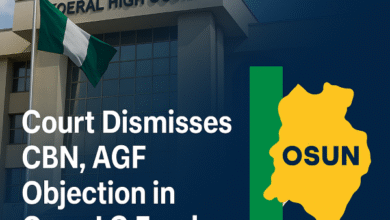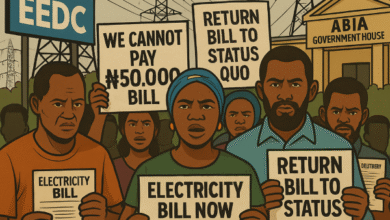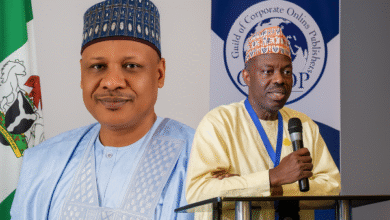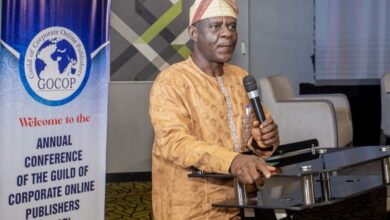NEWS
Pre-election cases: FHC Chief Judge issues new practice directions for speedy determination

Justice John Tsoho, the Chief Judge, Federal High Court (FHC) has issued new practice directions for speedy determination of pre-election matters.
This is contained in a statement issued by by FHC Assistant Director of Information, Dr Catherine Oby-Christopher.
Justice Tsoho directed that the new practice directions would take effect from June 28.
He said the directives were issued pursuant to power conferred on the Chief Judge by section 254, 285 (9), (10) and (14) of the Constitution of the Federal Republic of Nigeria 1999 (as amended), Sections 29(5) and 84(14) of the Electoral Act, 2022 (as amended).
“The purpose of this Practice Directions is to provide for a fair, impartial and expeditious determination of pre-election cases.
”It is alto to ensure that in all election matters, the parties focus on matters which are genuinely in issue,” he said.
Others the CJ said are to minimise the time spent in dealing with interlocutory matters, ensure that the possibility of settlement is explored before the parties go into hearing;
Others are to minimise undue adjournments and delays in the conduct of matters.
The Practice Directions, He said, would apply to every pre-election matter brought pursuant to the provisions of the Constitution of the Federal Republic of Nigeria 1999 (as amended) and the Electoral Act, 2022 (as amended).
He said it will also apply to notwithstanding the provisions of the Federal High Court (Civil Procedure) Rules, 2019.
“The Chief Judge of the Federal High Court may direct that matters be transferred to the appropriate Division or any other Division as may be reasonably practicable considering the given circumstances,” he said.
Tsoho said that a party challenging the conduct or outcome of a Primary Election shall join as a Respondent in the suit, the person who emerged winner of the said election or whose name was forwarded by his political party to the Independent National Electoral Commission (INEC).
The News Agency of Nigeria (NAN) reports that on rules of filling processes, every pre-election matter shall begin by an Originating Summons as
specified I Forms 3, 4 or 5 of Appendix 6 to the Federal High Court (Civil Procedure) Rules, with such variations as circumstances may require, among others.
On service of process, the CJ said a party shall not serve a notice of an application on another party on the date scheduled for hearing.
To ensure speedy dispensation of justice, the CJ said electronic mail and other electronic means may be employed by the Court in order to inform counsel of urgent Court case events.
READ ALSO:https://brandeconomy.com.ng/world-population-growth-slowing-expected-to-reach-8bn-by-years-end-un/
“In line with the provision of Rule 5(2) of the Rule, parties are expected to furnish the Court Registrar with functional telephone numbers and email addresses of themselves and their counsel.
“An application for substituted service shall be as provided for in the Rules of this Court.
“Upon the close of exchange of processes between the parties, the Court shall within 7 (seven) days, set down the matters for hearing.
“The Court shall continue to accord priority to all pre-election matters until judgment is delivered,” he said.
Where a matter comes up for hearing under this Practice Directions and either of the parties is absent, he said the Court shall either suo motu or upon oral application by the Counsel for the party present, order that the address of the party absent be deemed adopted if it is satisfied that the parties had notice of proceedings.
On interlocutary applications, the CJ said every application for Interlocutory Orders shall be on Notice, stating the Rule under which it is brought, the grounds for the reliefs sought and shall be supported by an Affidavit and a Written Address.
(NAN)











